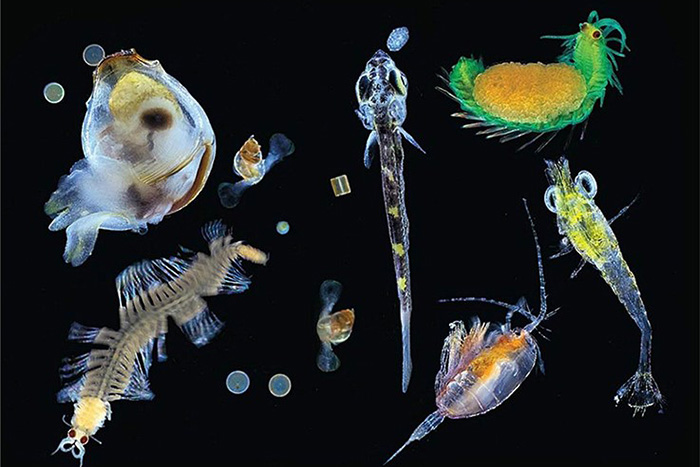
Marine plankton represent an enormously diverse collection of single and multi-cellular organisms that exist in all of the world’s oceans and seas and which provide sustenance for many species, from fish to whales. Christian Sardet. “Plankton—Wonders of the Drifting World,” University of Chicago Press, 2015.
In a paper published in the journal Science of the Total Environment, Robert K. Naviaux, MD, PhD, professor in the Departments of Medicine, Pediatrics and Pathology at UC San Diego School of Medicine, and colleagues show how an almost century-long survey of marine plankton in the world’s oceans can help document historical trends in ocean health.
But the research has a compelling, parallel revelation: The plankton are a living record of exposure to manmade chemicals in the ocean over time and space, to which they adapt.
“Plankton are responding to the chemicals in their exposome, in part by changes in their own mitochondria that change their biology,” said Naviaux, “and so too, I would argue, are humans. It is my hope that the use of our methods by research groups around the world will reinforce the connection between ecosystem health and human health, and provide new tools to monitor how the human chemical footprint has changed over the past century.
“If the linkages are found to be close enough, plankton exposomics from observatory sites around the world might be used in the future to track and curb pollution that leads to human disease.”
— Scott LaFee